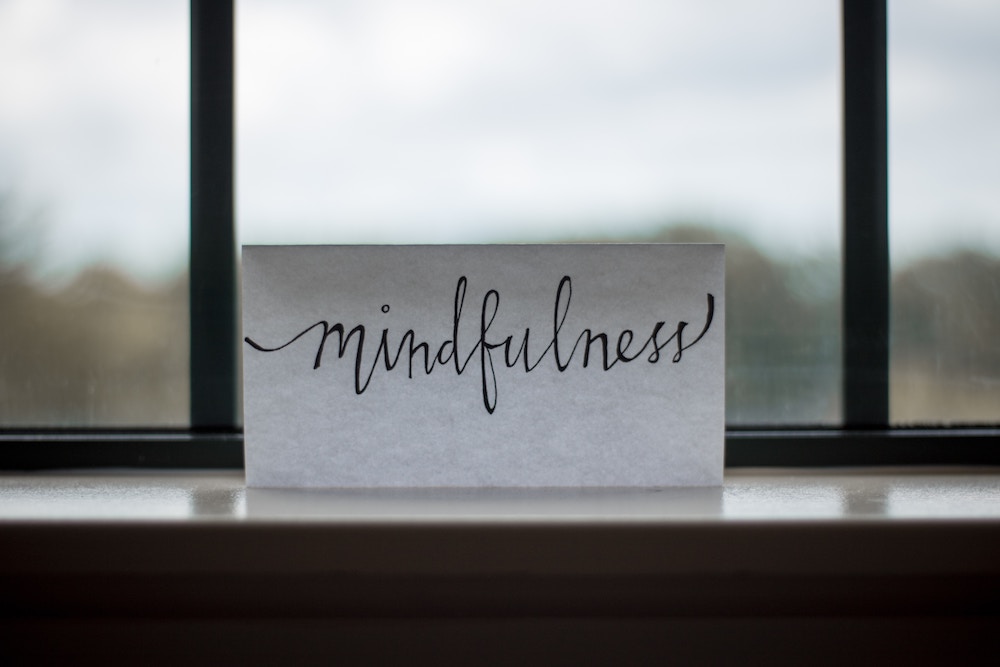How to Practice Non-Judgment For a Healthier and More Positive Mindset

Just about every single thing you experience is filtered and categorized as positive, negative or neutral by your mind.
When certain experiences are judged as “positive,” and create positive feelings, we tend to hold on to these and grasp for more. Other situations we encounter may be judged as “negative,” so we resist and avoid them. Sometimes we also judge things as “neutral,” and those things we tend to give less significance to.
In this sense, your mind acts like a judging machine. The truth is, making judgements is a natural part of being a human being. But there is a big difference between making a judgment and having a judgemental attitude towards yourself and others.
What is the Difference Between Being Judgmental vs. Making Judgements?
When you make a judgment, it tends to come from a clear mind, where something is simply categorized as positive, negative or neutral. On the other hand, being judgmental comes from a reactive and imbalanced mind that wants to protect itself from being hurt. Being judgmental is, essentially, a defence mechanism.
We can be quick to jump to conclusions. We may label others before getting to know them. Judging others may even happen subconsciously, without you being aware that it’s part of your internal dialogue.
Can you think of a time when you judged someone? In the moment, it may have felt right to judge. But, if you checked in with yourself, it probably didn’t feel great physically or emotionally.
What about when you’ve felt judged? Also, not a good feeling. In fact, we often also judge aspects of ourselves as “good” or “bad”.
If you really think about it, who has the right to judge anyone? Judgments are merely based on our personal opinions and experiences, neither of which are great measuring tools.
Having the awareness of when you’re being judgemental and practicing non judgement can change your life in many positive ways. In fact, studies show that when you judge people and circumstances less, you can greatly improve the quality of your life and reduce stress, anxiety, and even stress-related illnesses.
Let’s take a look at the specific ways practicing non judgement can improve your life, and how to put this into practice.
5 Ways Practicing Non-Judgment Creates a Healthier and More Positive Mindset (And How to Make This a Consistent Practice)

1. Non-Judgment Helps Get You Off The Hamster Wheel of “Not Enough”
We experience so much dissatisfaction from our endless quest for more – more titles, more money, more accomplishments. It’s judgment that motivates this pursuit and creates the conviction that what you have right now simply isn’t enough. By letting go of judgment, you open yourself up to appreciating the myriad of positive qualities of where you are right now, which allows you to feel content, grateful and satisfied in the present moment.
Our blog post, How to Use the 7 Pillars of Well-Being to Create More Health and Happiness offers poignant tips on remaining grounded and focusing on the good things right now.
2. Non-Judgment Opens You Up to Richer Experiences
How often have you stopped yourself from trying something different or new just because you thought you wouldn’t enjoy it, and perhaps judged it as a negative experience? Again, this is a natural part of being human. But something magical happens when you set your judgment aside and try something new: you open yourself up to the possibility of an exciting, life-enriching experience. You may even find an entirely new interest that changes the course of your life path.
3. Non-Judgement Helps You Appreciate The Beauty in Yourself and Others

When you break down the barriers of labelling something as “positive, negative or neutral”, you can open yourself up to see the beauty in every aspect of life, and feel appreciation for even the most simple things Any experience, activity, person or even object can be enriching if you take a moment to focus your attention on it.
4. Non-Judgement Creates Clear Vision
When you react to your judgments, you’re only able to see your own interpretations. By letting go of judgment, you will have the wonderful opportunity to see things unfiltered, as they really are.
5. Non-Judgement Creates Inner Peace
If you have “bad” things in your life, consider this: it is your judgments that are the only source of stress about those negative things. When you let go of judgments, you let go of the “bad,” and replace negative feelings with acceptance, which frees you from unnecessary stress and suffering.
How to Start Making Non Judgment a Daily Practice
Here are the tools we recommend trying to begin feeling more acceptance and appreciation for what is, so that you can create more peace, happiness, and success.
1. Meditation.
Meditation is a practice that helps you become detached from situations and outcomes, which can help you to energetically shift away from judgments. Instead, you will begin to experience and appreciate things exactly as they are (even things that you may have previously thought were undesirable or frustrating).
Meditation simply involves sitting comfortably and silently, and focusing your attention on your breath as you let go, relax and do nothing. This helps ground you in the present moment and eventually allows you to move beyond the conditioning of your mind.
2. Keep a journal.
Self-talk helps you clearly lay out your thoughts.
Take time during the day to record your self-talk in a journal. Reflect on your day’s interactions and experiences and how you felt at the time. Are there any thoughts or assumptions behind your feelings?
Perhaps you may even notice when you are judging yourself. Journaling can help you discover how often you are being judgmental and help you see where you can begin to shift this. Journaling can also give you a greater understanding and confidence in who you are, which could prevent you from comparing yourself to others.
3. Practice mindfulness.

As mentioned, judgement is a habit that causes the mind to narrow so that you see people and circumstances with tunnel vision, based on your past opinions or experiences.
Practicing mindfulness, which simply means to be aware of what’s happening in the present moment, helps ground you in the “now”.
This can prevent you from judging what’s currently happening based on your past.
Whenever you feel a judgement start to come up, try to take a deep breath and notice your surroundings. Feel the air, see the colors around you, and listen to the sounds. Take everything in so you can redirect your focus to the present moment.
Like any new habit or shift in your mindset, being non judgmental takes practice. By following these simple steps and becoming aware of and releasing your judgements, you will be on your way to having a more relaxed, open and peaceful mind that will open you up to all kinds of beautiful, new experiences.
As Mother Teresa said, “If you judge people, you have no time to love them.” (The same goes for judging yourself.)
Non judgement is a necessary part of cultivating your health and well-being, which we can help you put into practice during our Wellness Week Program. Wellness Week is a complete mind, body and spiritual retreat designed to help you improve your physical and emotional wellbeing. Improve your relationships, reduce stress, discover your purpose in life, and experience more peace, abundance and joy.
Learn more about how our wellness programs can empower you on your healing journey..
